Has anyone got rid of Bermuda Grass without chemicals
Has anyone got rid of Bermuda Grass without chemicals. I've read that layering compost with wet newspapers/cardboard on top works, or solarization.
But has anyone here tried it on Bermuda Grass. This stuff is terrible to take out. I spent a couple of hours just trying to get it out by digging and only cleared about 2 square feet.
I want to get rid of the lawn plus all the grass that's overgrown into the rock mulch layer.
Don't want to use chemicals like Roundup.
Comments (58)
newtoucan
Original Author12 years agolast modified: 9 years agoThe weather starting to heat up so digging is going to be hard. I agree it is kind of therapeutic and satisfying, but getting one square foot out took me over an hour about a week ago and now it's already back. Plus, it's funny because when I try to stand up after this, I'm like a hunchback, I can't stand up straight and then I start feeling dizzy after crouching down so long.
The gardener sprayed Roundup on it before even though I told him not to. That didn't work either. It's back with a vengeance.
MaryMcP Zone 8b - Phx AZ
12 years agolast modified: 9 years agoOne dose of Round Up won't do the job, it's a multi-application issue. Keep at it, the plant keeps coming back from underground runners. You have to keep killing the new growth until you finally whip it. Slow, steady, tedious work.
Related Professionals
Edmond Landscape Architects & Landscape Designers · West Milford Landscape Architects & Landscape Designers · Comstock Park Landscape Architects & Landscape Designers · Palm Springs Landscape Architects & Landscape Designers · Caldwell Landscape Contractors · Davis Landscape Contractors · Fairview Landscape Contractors · Gloucester Landscape Contractors · Oakland Landscape Contractors · Pine Hills Landscape Contractors · Soddy Daisy Landscape Contractors · Woodburn Landscape Contractors · Hayward Carpenters · Lexington Carpenters · North Hollywood Carpenterstomatofreak
12 years agolast modified: 9 years agoI would dig it out a spoonful at a time before using Roundup - or any other herbicide. http://www.organicconsumers.org/monsanto/roundup.cfm It's not an innocuous chemical. A previous poster noted the deleterious effects of solarization, but you can rebuild soil by putting good stuff back in. You'll never get the bad stuff back out.
User
12 years agolast modified: 9 years agoTomatofreak ... have you read the research that site claims proves their point. They were discussing multi-herbicide exposure, with some that are now banned, not a single herbicide.
Also, it is not clear which formula of Roundup they are using, and whether they have controlled for the effects of the other ingredients. (as an oncologist I know says ... everything can cause/cure cancer in a test tube. It's much harder making it happen in the real world.)
Try this one, which is much newer, and focuses on non-cancer health: http://www.ncbi.nlm.nih.gov/pubmed/21798302
Or this one, which is an on-going study, "We evaluated associations between glyphosate exposure and cancer incidence in the Agricultural Health Study (AHS), a prospective cohort study of 57,311 licensed pesticide applicators in Iowa and North Carolina."
http://www.ncbi.nlm.nih.gov/pubmed/15626647Yes, lymphoma is increasing. It's because people are living long enough to get it! Look at the ages at which the deaths are occurring.From 2004-2008, the median age at death for lymphoma was 75 years of age. Approximately 0.5% died under age 20; 2.2% between 20 and 34; 3.0% between 35 and 44; 7.1% between 45 and 54; 14.1% between 55 and 64; 21.8% between 65 and 74; 33.1% between 75 and 84; and 18.2% 85+ years of age.
tomatofreak
12 years agolast modified: 9 years agoDon't have time now, but I will read the studies. You said, "They were discussing multi-herbicide exposure, with some that are now banned, not a single herbicide." That is precisely my major concern with the ubiquitous use of glycophosphates (many that include surfactants and adjuvants as toxic or more so than the glycophosphate). We live in a chemical soup with toxins in the air, water and soil. Most studies focus on one chemical, never the systemic effects of that one and the dozens of others present in the environment. And I know it's only anecdotal evidence, but I don't know one elderly person who succumbed to non-Hodgkins lymphoma; they were all middle-age - and every one used pesticides and herbicides. Sadly, the incidence of lymphoma (and other cancers) in cats and dogs is increasing dramatically. No, there's not a proven link to chemical control of bugs and weeds, but there's usually a mention of such as a suspected cause. They're close to the ground and absorb more than we do.
I don't believe in "better living through chemistry;" I'd rather err on the safe side and put up with a few weeds and bugs. I'm always delighted to find a worm in an ear of fresh corn; it means the field wasn't sprayed to death with some nasty chemical.
Pagancat
12 years agolast modified: 9 years agoI do agree with plqstd about solarization killing off soil microbes, however, a few shovels-full of compost will get them going again.
However, it's only as good as the heat can reach. Another way is a bit more risky (and probably illegal in some parts) is to burn it off - but the heat has to be able to kill off any roots, too - so it would have to be quite a long burning fire. But that's also the only way I know to kill off bamboo.
I used solarization once on Bermuda quite successfully - unfortunately, the nutgrass was not as susceptible. Nasty stuff.
I don't like chemicals at all, and would call myself organic if it weren't for Bermuda Grass and Round up.
plstqd
12 years agolast modified: 9 years agoThe digging is enormously easier if you soak the area you're going to dig a couple of days before you do so. Moist (not wet) soil is much easier to work with. It's also easier if you keep the bermuda growing healthily so it doesn't get dry and brittle. Getting out early in the morning helps with the heat, and taking breaks to stretch and stand straight will help your back.
tracydr
12 years agolast modified: 9 years agoWith the corn gluten meal, when is the best time to apply it and where do you get it?
User
12 years agolast modified: 9 years agotracy - Corn Gluten is a pre-emergent. That means it prevents seedlings from sprouting. It will NOT do anything to existing plants, except act as a weak fertilizer.
the Bermuda would love it.
tracydr
12 years agolast modified: 9 years agoSo, should I use it in January or Feb or are you saying that established Bermuda would just love it?
newtoucan
Original Author12 years agolast modified: 9 years agoYes, I agree that chemicals are not the way to go. Had a parent who died from pesticide use. Had another friend's husband who lived in farmland area and inhaled chemicals sprayed in air. He died of lung cancer.
Of course it can't be proven, but from my personal knowledge of them, I believe that it was caused by pesticides. I see gardeners spraying everyday all over lawns and gardens. Can't be good for anything. Kids are playing in the areas without shoes on sometimes. Can't be good for their health either.
User
12 years agolast modified: 9 years agoTracy - Established Bermuda would consider it to be a fertilizer. It only works on SEEDS, not perennials.
Corn Gluten is effective against many annual weeds, IF applied in a heavy enough concentration, AND IF it's the right time of year AND IF we get the right amount of rain. Too little rain and the active chemical isn't spread from the granules, too much and the active chemical is washed below the root zone. Too early and the active chemical is degraded by soil bacteria and exposure, too late and the seeds have already sprouted. In any case the weed seedlings thrive.
Although I'm not in favor of slopping "weed 'n feed" stuff all over the lawn, and my plants have to beg me for fertilizer, if you want to kill Bermuda grass, properly applied glyphosate is about the only way to do it and still have a garden left.
Do NOT use the new Roundup formulas. They have added something for "fast knock-down" and it's 2-4D or a similar herbicide and it's not as fast to disappear as glyphosate.
tomatofreak
12 years agolast modified: 9 years agoYou can get rid of Bermuda without using glycophosphate. Here's how some experts do it. And I know digging it out works because I've done it - and been able to keep it out.
Here is a link that might be useful: removing Bermuda
neilaz
12 years agolast modified: 9 years agoHow big is your lawn? Are you going to dig out 1 foot of soil and remove every Bermuda stem from the whole site? If not good luck. Don't want to get cancer then alkalize your body. Cancer can only grow in acid.
azbolt
12 years agolast modified: 9 years agoMy garden has been overrun with bermuda grass this year and I did not want to use Roundup so I thought I'd try the solarization method with plastic. I planted half my garden as usual (and now the weeds and grass are as tall as the veggies!) and the other half I put down plastic after mowing over the weeds. I did two strips of black plastic and one strip of clear plastic just to experiment. It's been a little more than a month and the black plastic is working MUCH better than the clear. There are still some weeds trying to grow under the clear. I'll leave the plastic on until August(ish) then move the plastic over to the other side of the garden and plant on the weed free section in the fall, or at least that's the plan. I'm just hoping the heat is killing the roots of the bermuda!
Kevin
newtoucan
Original Author12 years agolast modified: 9 years agoWhere did you get your black plastic?
Did you put manure/compost and cardboard over the grass and under the plastic?
I found something at Home Depot thinking it was clear, but it was more of a white which would reflect the sun. I'm going to try solarization.
I have used the lasagna method before on mint and it worked mostly. The mint did come back, but far less and I'm able to pull it out as it comes back. Before doing it, the garden was overrun with it. I'm going to try solarization and lasagna method
azbolt
12 years agolast modified: 9 years agoI got it at Lowes, they are 10'x25' strips. I didn't put anything other than the plastic down, so far so good! I have had to put more/heavier rocks and bricks down to keep the wind from blowing the plastic. Sometimes the wind catches it just right and it pulls a section off.
Kevin
Jeannie Cochell
11 years agolast modified: 9 years agoI used solarization to kill bermuda in areas where I was putting in a rosebed. Since roses need a lot more humus than bermuda, I wasn't concerned about soil sterilization.
Instead of dumping the soil, though, I moved it to the site of another proposed rose bed, watered it thoroughly and covered the whole mound with black plastic sheets for about a year. That worked as well as spraying it with RoundUp and covering it for 6 months. I never tried the industrial-strength vinegar approach that someone recommended.
Corn gluten meal had no discernable effect on weed germination nor as a fertilizer. The cost per application was much higher than a bag of alfalfa pellets for the same general available nitrogen.
I've heard various rosarians, landscape professionals and agriculture guys say that glyphosate (RoundUp) can be used today and the area planted with turnips tomorrow. I don't like turnips anyway. Merit, imadicloprid, is widely used on cotton and lettuce fields to control pests. I pretty much quit eating lettuce.
newtoucan
Original Author11 years agolast modified: 9 years agoI found something in a magazine for gardeners. It's called Red Dragon flame torch at flameengineering.com. It sounds good but has anyone tried this around here and is it legal in AZ. If I can't get all the bermuda grass out I want it to stop spreading outside its boundaries. I don't even water it and it spreading like crazy.
MaryMcP Zone 8b - Phx AZ
11 years agolast modified: 9 years agoThe thing about using fire is that for the fire to reach deep into the root zone, it has to burn for a while. Like a bonfire over the bermuda grass. Those torches work well but you'll have to keep doing it.
Kevin, how did the solarization work? I'm trying that now and had read that clear plastic works better than black because sunlight passes *through* the plastic to heat the soil. But either black or clear will work if you leave it on long enough.
ernie, it's easy to replace soil microbes. Like someone said, add back some compost, pour on compost tea, dig in a product called Mykos to innoculate the soil, get some worms....
Here is a link that might be useful: Soil Solarization Instructions
azbolt
11 years agolast modified: 9 years agoMy experiment with the solarization using black and clear plastic was interesting. I've seen most places say that you should use the clear plasic, but in my garden the black plastic worked MUCH better. The clear plastic lets the light through, meaning the weeds underneath get plenty of sunlight. Some weeds I found (purslane comes to mind) loved the heat under the clear plastic! Even the bermuda grass didn't die, got kind of yellow, that's about it. Also the clear plastic quickly became brittle and broke up into tiny pieces and blew away! The black plastic is still in my garden, waiting for it to cool down so I can remove it, rototill and plant my fall garden.
Kevin
MaryMcP Zone 8b - Phx AZ
11 years agolast modified: 9 years agoThanks for the report. I have clear down now so we'll see how that goes. If I need to do it again I'll switch to black. I want to plant an asparagus bed this winter where the bermuda grass is being solarized.
azbolt
11 years agolast modified: 9 years agoI'll be interested to hear about your results marymcp!
Kevin
xica_da_silva
11 years agolast modified: 9 years agoThis thread is sooooo timely for me. I've got this large, stubborn patch of bermuda in my backyard that just won't quit! I've even started to grudgingly admire its tenacity- barely. Long term, it's probably a great place to grow a tree or veggies, but right now it's just an eye-sore, because it's coming out in my decorative rocks.
I'm going to give the black plastic a try- even though it means raking a huge amount of rocks out of the way first. Probably should wait till next weekend since it will be an all-day project, no doubt(I'm a scrawny 5-8 and 120 lbs, but determined and feisty with recalcitrant weeds)!Good luck to all of you who are doing the same- keep us posted! :)newtoucan
Original Author11 years agolast modified: 9 years agoThe problem is I keep on pulling out the Bermuda grass including the roots, but of course I miss some roots and the bermuda grass comes right back. I haven't even watered it all summer and it looks green as ever with all this rain. It is so hard on the body stooping over. I'm going to burn it off with this Red Dragon device that I'm buying on amazon. I'd rather do that repeatedly than try to pull it out. I'll report on results after trying it.
newtoucan
Original Author11 years agolast modified: 9 years agoThe problem is I keep on pulling out the Bermuda grass including the roots, but of course I miss some roots and the bermuda grass comes right back. I haven't even watered it all summer and it looks green as ever with all this rain. It is so hard on the body stooping over. I'm going to burn it off with this Red Dragon device that I'm buying on amazon. I'd rather do that repeatedly than try to pull it out. I'll report on results after trying it.
Pagancat
11 years agolast modified: 9 years agoXica, you're gonna have a tough time of it around rocks - or is it more gravel-y? If it's gravel, you have a good situation - rake the top layer off before you solarize and you're that much closer to heating up the roots.
It's true that Bermuda is a gardeners nightmare. Unfortunately, it is one of the few turf grasses that thrive in heat and looks good, so we will probably always have it now, between the golf courses and the turf junkies.
Tomato, I love you, but the amount of digging it would take to remove this stuff in any sizable area is just ridiculous. I'd do black plastic before anything else.
tomatofreak
11 years agolast modified: 9 years agoI don't think I'd want to dig an area as big as my front yard, but I have dug the dreaded stuff out of boundary beds successfully. I've also used black plastic, but in a different way. I once dug out a bed to a depth of about two feet and *lined* it with the plastic. Then I filled it with clean (amended) dirt. It worked! Digging is not for the faint-of-heart. If I were to tackle a big area, I'd hire some guys to dig deep, solarize the soil and start over. At my house, the St. Augustine has about driven the Bermuda out; however, that's an iffy trade. The only up side to the St. A. is that it's *much* easier to pull out.
Pagancat
11 years agolast modified: 9 years agoThe only downside I can see to lining a bed like that is drainage. Did the plastic break down much in that bed?
tomatofreak
11 years agolast modified: 9 years agoI really don't know. I had the house for some time after creating that bed but sold it a few years ago. New owner had gorgeous annuals and perennials at first, then planted a bunch of privets that she let run wild, so I don't know how it's held up. Right now, I've got about 8 - 10 feet of bed that's been taken over - again - by Bermuda 'cause we can't seem to get the blasted irrigation (soaker hose) flow right. Unless I dig up the whole thing and start over, I might as well plant watercress and taro there.
xica_da_silva
11 years agolast modified: 9 years ago
Having done a bit more research on the topic of solarization, I noticed there's a bit of controversy regarding the use of clear white plastic versus black. From what I've read, apparently the black works more by depriving the weeds of light, so this is not true solarization. Whereas the white/transparent does more to fry the soil and kill off not just the living weeds, but any seeds below the surface of the soil, so it is considered true solarization. But who knows? We're in such an extreme environment here in Phoenix- I wouldn't be surprised if the black did a good enough job of heating, too. But then again, maybe Bermuda can withstand any heat level- so perhaps the best way is to deprive it of light? Who knows? lolThis being the case, my weed-killing project may involve 2 parts, especially since the plastic is relatively cheap. I've already put out the black for 'immediate' control of the weeds...but I suspect doing another round of covering with the white plastic in say, April or May when it starts to get hot, might help to zap any seeds as they begin to emerge? Thank God it's in my backyard, so no one needs to see my little science project!
The hardest part for me has already been done- shoveling/raking all the decorative rocks (and yes, Pagancat, they are unfortunately heavy-ish rocks and not pebbles...and my back is still sore! Got a few blisters on my hands, too, but whatever! lol) out of the way.
Here's a picture of the 'before':xica_da_silva
11 years agolast modified: 9 years agoAnd for part II: The dirt is that thick muddy stuff, so I wet it down as much as possible. Then I held it down with pavers- the plastic stuff is 3.5mm thick, about the consistency of a heavy-duty garbage bag. Then, to get rid of the air pockets, because there are little dips in the thick mud that I could never just 'rake' to even out, I thought why not just hose it with water over the top, so it will hopefully adhere to the mud on the bottom, due to some added weight. And of course it will dry very quickly it being Phoenix, after all. Well, I guess after 4 weeks or so we'll see how it goes! Anyhow, here's the 'after' pic:
MaryMcP Zone 8b - Phx AZ
11 years agolast modified: 9 years agoLooks good xica. I could not get my plastic sheet that flat as I'm not working with a straight, flat rectangle like you. I'm hoping for the best!! I would give it a minimum of 6 weeks though. The directions I'm following say 6 to 8 and that you can even use this method if you do not live in a high heat area. You just must leave it on longer. I don't expect to plant this bed until January so I'll leave mine maybe 10 weeks. Keep us posted!!! [and I'll so the same.]
xica_da_silva
11 years agolast modified: 9 years agoThanks, Mary! Good luck on your project, too! Yes...let's def keep each other posted!
MaryMcP Zone 8b - Phx AZ
11 years agolast modified: 9 years agoA miserable failure on controlling bermuda grass - sigh. Soon as I took the plastic up, the bermuda began greening up. An instructor at a recent veggie gardening class said soil solarization will not kill bermuda grass because it's not coming up from seed, it spreads from underground runners. Back to RoundUp and/or Over-the-Top.
plstqd
11 years agolast modified: 9 years agoAside from catching stray bits as it comes up, I'm finally done digging out the bermuda grass in my back yard. Oh happy day! It was a long project, but I'm not sorry I did it by hand. It was good contemplative time, and I actually benefited from spending so much time in my yard digging. I have gotten to know my space much better, and have revised some of the things I originally intended to do because I've been able to watch my yard closely through the seasons. I realize digging is not for everyone, but I'm glad I did it this way. Now I just have to get the irrigation in, and put in the walkways and borders, and get some foundation plants, and, and, and...
tomatofreak
11 years agolast modified: 9 years agoI'm with you, plstqd; digging it out works when all else fails. Bermuda does indeed come up from seed as well as runners. That's why grass clippings *never* go in my compost; I am sure there is a seed in there somewhere!
xica_da_silva
10 years agolast modified: 9 years agoGosh...time sure does fly. I've been meaning for almost 6 months now to report on my experiment with solarization. I was the one who posted picture above with the black plastic. No one is more shocked than I am, but I wanted to let those interested know- it worked! I mean for once in my life, I finally defeated my greatest gardening foe- the formidable Bermuda! Weeds are gone from both areas that I covered. If I recall correctly, I did keep the plastic on all the way from September to the beginning of December, so perhaps the lengthy duration helped (whether due to heat + lack of light, or just lack of light, I don't know). Of course, now that it's un-covered again, some Bermuda seeds could get blown into the soil once again...but so far so good. My only problem is, now I've got some other hotspots that, for aesthetic reasons, I don't really want to use the black plastic for an extended period of time. So, back to pulling weeds for those areas, I suppose.
azbolt
10 years agolast modified: 9 years agoThanks for bringing up this thread again, I totally agree, black plastic is the way to go to get rid of Bermuda grass. I have to cover half my garden at a time with it to keep the weeds and Bermuda at bay. It's very effective. I tried clear plastic last year on part of the garden just as an experiment, but it failed miserably whereas the black worked great!
Kevin
MaryMcP Zone 8b - Phx AZ
10 years agolast modified: 9 years agoI see that I posted a failure in Oct 12 but I did it again last summer in anticipation of planting an asparagus bed in one section. I can now report good success. There's another thread somewhere where Kevin (bolt) and I both posted, others too probably.
Anyhow, I used clear plastic. I already had it down when Kevin advised against clear in favor of black but I'm in good shape now. I've planted both those beds, after amending heavily to make up for the nutrients lost in the solarization process, and veggies are thriving and only an occasional bermuda weed pops up. In one bed the bermuda is tangled up with a cactus so I've used "Over-the-Top" spray which promises to kill the bermuda but not the plant(s) nearby. It has had a good controlling effect and the bermuda is no where near what it was.
Thanks xica for coming back around. Experiments are only as good as knowing the results!!! ;-)
This post was edited by marymcp on Sun, Jun 9, 13 at 12:36
newtoucan
Original Author10 years agolast modified: 9 years agoThanks for posting the results. Where do you get this black plastic. I too tried the clear plastic and the grass sure loved it. I've tried burning it and it comes right back. I've tried cardboard and mulch and it has so far worked, but I am sure it is on it's way back.
xica_da_silva
10 years agolast modified: 9 years agoThanks Mary and Kevin for the feedback, and shared stories of success using the black plastic.
Toucan, I got it @ Home Depot- I think in the paints section. If I recall correctly, you need to get the proper thickness - mine is quite a bit sturdier than a typical garbage bag. Maybe someone else can chime in- I lost the package so not sure if it's 4mm or what, since there are various 'thicknesses'.
g1powermac
10 years agolast modified: 9 years agoI know this is an old thread, but I'd like to add the knowledge I've gained from battling bermuda grass over the years using only organic methods. I live on heavy clay soil and the bermuda grass is heaviest over the leach fields of our septic system. Because I can't plant anything but grass on the fields, I added lots of planting beds near and around the fields where the bermuda is the thickest, but didn't know how much of a pain that was going to be. So, to say the least, I've been whacking at the bermuda for years and learned the following:
Digging it up is an almost useless undertaking mainly because of our thick clay soil. There's always enough missed that the stuff comes back fairly quickly. This is especially true if digging it up near a sidewalk or driveway. There is plenty of rhizomes under the pavement.
Burning the stuff with a propane torch is fun at first but grows old quickly when you start seeing new green growth the following day. I also can't do extended burning sessions because I'm usually doing a remedial removal with good plants near the bermuda. I'm lucky enough to not burn the plants I want.
Boiling water held promise when I tried it despite risking killing roots of my wanted plants. Though my first attempt at this was incredibly dangerous (super propane burner under a giant stainless pot filled with boiling water and a smaller pot to scoop and pour the water out). I saw definite slowing of the regrowth but I couldn't risk doing it the way I was. So I devised a plan to turn my propane torch into a continuous hot water flame thrower by getting thin copper tubing, turning it into a coil, and attaching it to the end of the torch. With the hose attached to the other end and a valve to adjust the water volume, I was able to torch and pour boiling water on the bermuda at the same time. Unfortunately, the bermuda just kinda laughed at the rig and kept growing.
Industrial strength vinegar (ie, 20% acetic acid, and yes I know that stuff is quite dangerous) works wonders to kill the top growth, but sadly it just grows back.
Now if you're putting in a new bed, thick paper or cardboard under the added soil or mulch will work, but only if timed correctly, more about that to follow.
So what's left that an organic gardener has to kill this grass? The final thing in my arsenal is black plastic and not clear plastic. I've tried the clear in another area, albeit it didn't have bermuda in it, but it did have johnson grass and it loved the clear. The johnson grass just kept on growing.
The black plastic I've used is the stuff meant to go in crawl spaces as the moisture barrier. It's thick, heavy, and comes in really large sizes. And it withstands the elements very well. I've used one piece now for a year and it doesn't show any UV damage that most plastics would show.
Now there's a trick with using the black plastic. You have to time it right. If you want to kill the bermuda, do not put it down in the early spring to take it up in early summer or late summer for late fall removal. Because bermuda goes dormant where I live, the spring time use of the plastic will not really kill it as it is probably still dormant under the plastic.
But, the interesting part is the fall timing. As cooler temps approach in late summer, the bermuda starts going dormant even though it is still green. It starts storing more in its roots. So, even if you smother it then, it will come back in the spring. I learned this dearly when using the thick paper method of killing the stuff for a new bed. The paper did its job to kill the bermuda for that year, but in the following spring when the paper degraded in the soil, the bermuda came back with a vengeance.
So time laying the plastic out in the early summer to at least late summer. That should ensure total removal. Of course, if you're paranoid, like me at times, leave it longer.
Now, there's another problem with thick, black plastic. You really can't use it in already established beds because it will choke out your good plants and probably wreak havoc with your soil. It works wonders for killing this stuff before establishing new beds and for areas without plantings like walk paths.
But what do you do with established plantings? This year I got a new weapon. Woven black plastic: http://www.groworganic.com/sunbelt-weed-fabric-3-x-50-roll.html
The stuff lets air and moisture to pass through while keeping a total blackout for the soil surface. I haven't yet tried it on my bermuda as it is still dormant-ish, but I have some ready at first signs. It looks extremely promising as the material is thick and just as light blocking as the black plastic for a crawl space moisture barrier. And it should work just fine around my already established plantings.
newtoucan
Original Author10 years agolast modified: 9 years agoThanks, that good to know. I've also tried burning, steaming, vinegar, pulling. It just comes back. The best so far is cardboard and mulch over the cardboard. I'm going to try the black plastic with my old pond liber.
MaryMcP Zone 8b - Phx AZ
10 years agolast modified: 9 years agoIt's called "soil solarization" and I used this method to get rid of bermuda grass in two beds and found it very successful. It's odd but clear plastic works better than black. That is described at the bottom of page 7 in my link. I'll be doing this again soon for a bed in the front yard (sorry neighbors,it's going to be ugly for a few weeks) where bermuda is growing amongst a cactus garden. I'll have to pull out the one remaining cactus and replant when done.
I don't know if I posted in this link previously. It's so long.
Here is a link that might be useful: Soil Solarization How-To
mcottton
10 years agolast modified: 9 years agoI covered the raised bed garden with black plastic for 2 years then pulled up the plastic & covered with weed cloth. Planted my vegetables through the weed cloth following a good rototilling. Topped with mulch. I am now pulling up the weed cloth because the bermuda grass grew in under the raised bed (16 inches) and has formed a thick matt UNDER the weed cloth. Note that the raised bed garden is 10 foot wide and in full sun. then the seeds landed on top of the weed cloth and grew down through it.
I think I will try growing blueberries and dropping the PH really low and see if it still likes it. I would grow in shade but most veggies do not like the shade either
zelenkabach
9 years agolast modified: 9 years agoI feel your pain!
To get rid of Bermuda grass takes some time and vigilance. I posted an update on my battle with it last year.
I had put a few layers of newspaper down over bermuda grass and then topped it with free compost from our municipality. I planted in those beds thinking that it was a done deal but the grass came up right through it.
So what I did was to basically seal in that planted bed with wet layers of newspaper and cardboard, and I mean, SEALED in. I put overlapping layers (8+) of wet newspaper around the base of the plants and over any bare ground but left a little room at the base of the plants for water to seep in. I also had laid soaker hoses underneath the newspaper so that I could irrigate them when I wanted to.
I got a carload of newspaper from our local newspaper for free. In the heat of the summer the newspaper dried to almost a papermache crust!After sealing in the bed I covered in with wood chips. It didn't always look great because wind would blow the chips off the newspaper, but the plants did well. Plus, this helped keep my tomato's foliage clean.
Then I was very vigilant about pulling grass that managed to make its way through some layers of that paper, and some did, but it had to travel a far distance to get sunlight.
At the end of the summer I just left the mulch seal in place. The next summer I needed to pull up that mulch in places to plant and I was frightened that the bermuda grass would still be there, but it was 90% gone. What little was left was easy to pull out. The main problem was the grass on the edge of the bed that was growing into the bed and that continues to be a problem.
You have to deprive Bermuda grass of light, and be patient. That is the key.
I have to say that the newspaper covered beds can really look tacky when exposed so you have to be able to live with that at times. It does work.. Also, before you seal the bed with newspaper, give it a good watering first. The newspaper can wick away the moisture.
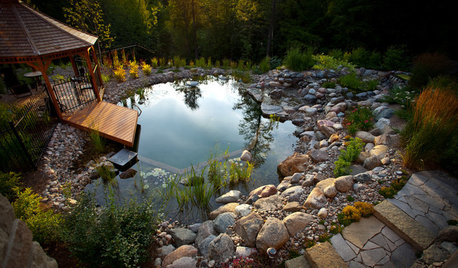


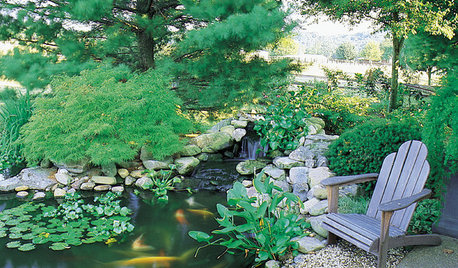
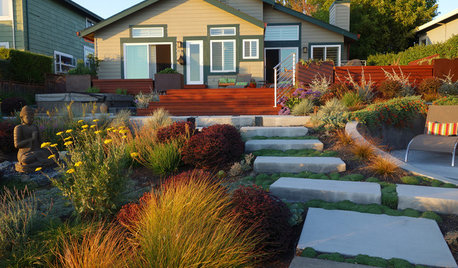

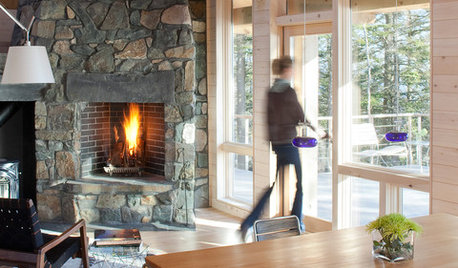

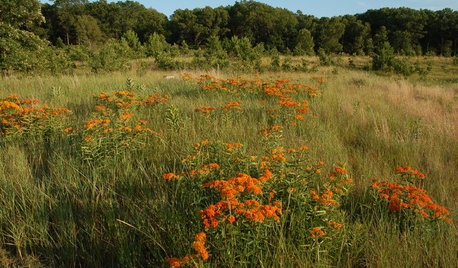
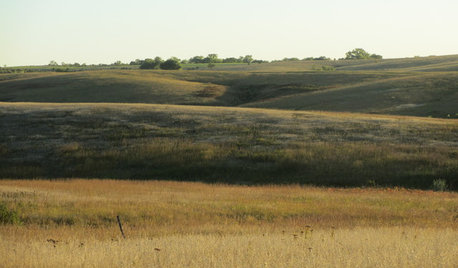







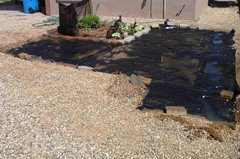

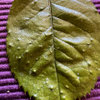

newtoucanOriginal Author